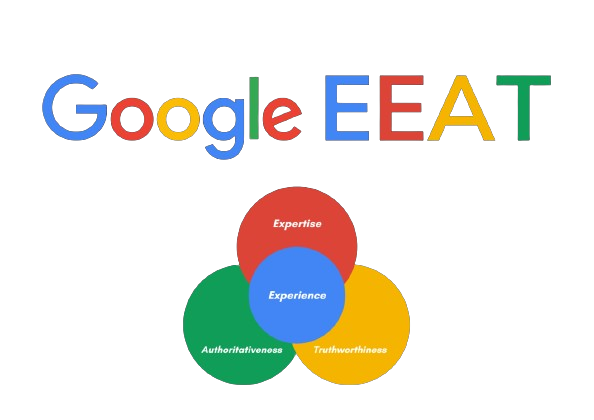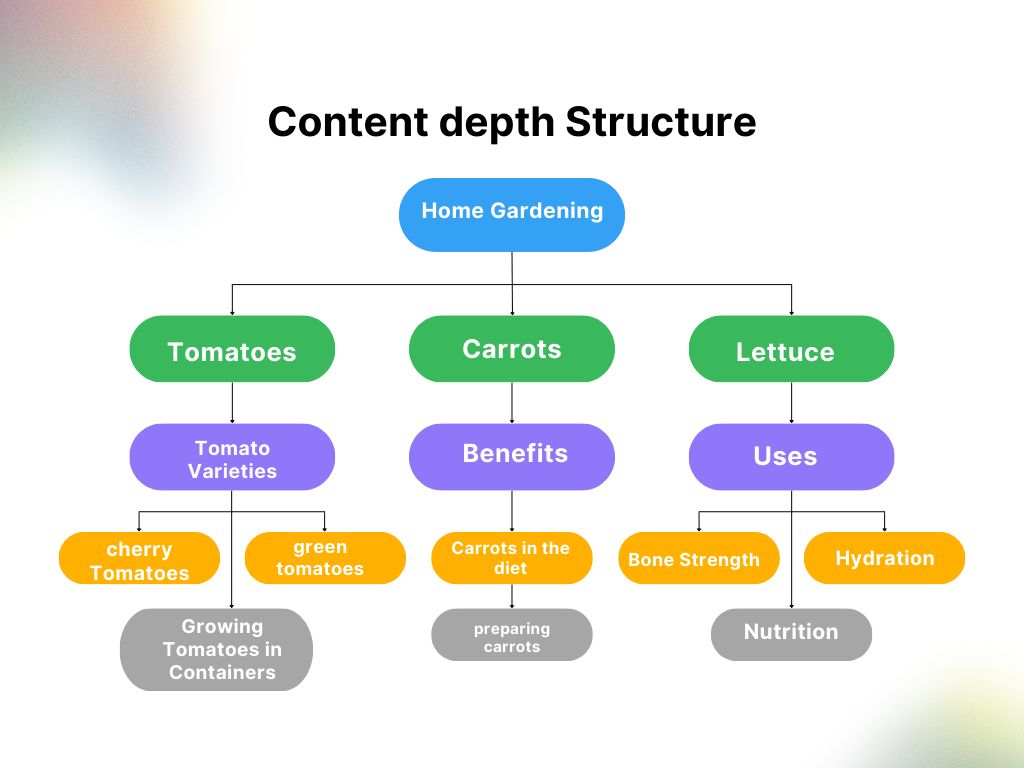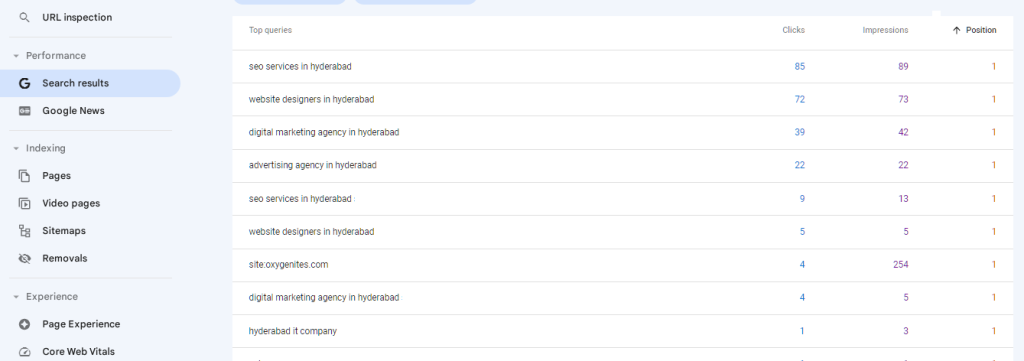Are you aiming for higher search rankings and increased website traffic? Discover the magic of topical authority in SEO concepts that can make this a reality!
While some claim it’s possible to achieve this without SEO link-building, the reality is different. Topical authority isn’t a shortcut, but it holds immense value.
So, Within this article, we’re here to explain the idea of topical authority in SEO. We’ll explain what it means and why making your website more visible and higher-ranked on search engines is important. Let’s get started!
What Is Topical Authority in SEO?
Topical authority measures a website’s expertise and credibility on a particular topic. Websites with high topical authority are more likely to rank high in search results for keywords related to their topic.
Search engines believe these websites are more likely to provide high-quality, relevant information to users.
In recent studies, Around 57% of SEO professionals consider topical authority a crucial factor for achieving higher rankings in search results. When a website consistently produces valuable and authoritative content on a specific subject, search engines recognize its expertise, leading to better visibility and rankings.
By focusing on developing comprehensive, relevant, and informative content around a particular niche, websites can enhance their topical authority and improve their search engine rankings.
Why Is Topical Authority Important for SEO?
Topical authority is super important for getting your website noticed online! Did you know that around 61% of businesses use special services to boost their website’s authority in different topics? They spend an average of $1,000 monthly on these services because they truly believe in the power of topical authority for SEO.
And guess what? A whopping 72% of these businesses say that using these services has significantly affected how well their website appears in search results.
Understanding and using topical authority in SEO means creating good content about specific topics people care about. When you focus on this, your website can increase search rankings and get more attention online!
So, what’s the secret sauce? Topical authority in SEO is about creating top-notch content that nails a particular subject. It’s like having a map for SEO that guides your website straight to the top of search engine rankings.
By focusing on specific topics and becoming the go-to source for information on those subjects, your website becomes a trusted expert in the digital world.
And when search engines see your website as an authority in a particular field, they’re more likely to show it to people searching for that topic. This means more eyes on your website’s content, clicks, and success!
How does topical authority work?
Think of topical authority as being an expert in something on the internet. It’s about making your website the best place for a specific topic, like having a map that guides your site to the top in online searches. To improve SEO, focus on particular topics (topical SEO) and provide valuable information.
Having topical authority in SEO can greatly improve your site’s visibility. Search engines notice it and might show it to people looking for that stuff. This makes your site more popular and visible online!
This process also involves E-E-A-T, which stands for expertise, experience, authority, and trustworthiness. It’s about showing you know your stuff, being seen as a reliable source, and ensuring the information you provide is accurate and trustworthy.
E-E-A-T (expertise, experience, authority, and trustworthiness)
EEAT, which stands for Expertise, Experience, Authority, and Trustworthiness, is like your website’s four corners of credibility.
Did you know that 65% of SEO professionals think EEAT is crucial for getting your website to the top of search results? That’s because it’s all about showing you know your stuff, being seen as a trusted source, and ensuring your content is accurate and reliable.

Businesses are also putting their money where their mouth is regarding EEAT. On average, they spend around $1,200 monthly on EEAT-related services. And guess what? An impressive 78% of these businesses say that using these EEAT services has made a real difference in how well their websites appear in search results!
So, in simple terms, focusing on EEAT means proving you’re an expert, gaining trust, and being a reliable source of information. When you nail these aspects, your website becomes more credible, ranks higher in searches, and gets more attention online!
Internal vs. external topical authority
Similar to how you manage some things in your life but not others, just like with SEO, your expertise in a topic is influenced by factors you can control and those you can’t. Let’s explore this idea in more detail.
Seo refers to internal and external topical authority establishing expertise and relevance within specific subjects or topics.
Internal Topical Authority:
This is like being the expert in your own house. It means having good, detailed information about a topic on your website. When your site has lots of helpful content that covers a subject well, that’s internal topical authority.
Examples
- On Your Website: Writing detailed guides and articles about cooking techniques, recipes, and kitchen tips.
- In-depth Blog Posts: Creating blog posts that thoroughly cover fitness routines, nutrition advice, and workout plans.
- Educational Videos: Produce informative videos about photography techniques, camera reviews, and editing tips on your website’s channel.
External Topical Authority
Think of this as others vouching for your expertise. It’s when other trusted websites talk about your site or link to your content because they think it’s valuable and reliable. When reputable sites say, “Hey, this website knows a lot about this topic,” that’s boosting your external topical authority.
Examples
- Backlinks from Health Sites: Receiving links from well-known health websites to your fitness blog, recognizing your expertise in wellness.
- Reference from Cooking Forums: A popular cooking forum discussing and linking to your recipes, acknowledging your authority in culinary skills.
- Mentions in Photography Blogs: Reputable photography blogs referencing your website’s photography tutorials, endorsing your expertise in the field.
How topical authority helps with SEO
Imagine topical authority as a pro in a specific topic, especially online. Did you know that having strong topical authority is like a secret code to search engines, saying, ‘Hey, my website knows its stuff!’ Studies show that websites with solid topical authority are three times more likely to rank higher in search results for their focused topics.
When your website establishes expertise in a particular topic, search engines prioritize your content, leading users directly to it. This matters because around 70% of clicks on search results go to the top 5 organic listings.
So, why’s it so impactful? When people search for information on that specific topic, your site appears trustworthy because it’s seen as the authority. It’s like being the go-to source for that particular thing.
When your site boasts strong topical authority, it’s packed with detailed, helpful, and reliable information about that topic. And guess what? Around 75% of users trust websites that appear on the first page of search results.

So, when search engines recognize your site as the expert in a specific subject, they’re more inclined to show it to people looking for that information.
That’s how having robust topical authority can significantly boost your website’s visibility, credibility, and overall success online!”
What Are the Benefits of Topical Authority?
When your site becomes known for a specific thing, it gains more respect from both users and search engines. It’s similar to becoming a trusted guidebook for that particular subject online.
Having strong topical authority can greatly benefit your SEO efforts. When you establish topical authority, search engines recognize your expertise in SEO-related topics, which can lead to higher rankings in search results. This means having SEO topical authority makes your website more trustworthy and relevant for specific SEO-related issues. Building topical authority in SEO involves:
- We are creating high-quality, relevant content.
- We are earning backlinks from authoritative sources.
- It is gaining recognition as a go-to source for SEO-related information.
So, here are some benefits of having strong topical authority.
Becoming an Expert:
Becoming an expert in a specific field involves in-depth knowledge, experience, and authority in that subject matter. For instance, in SEO, expertise could mean having comprehensive knowledge about keyword research, on-page optimization, link building, and content strategy.Utilizing a professional Link Building Service can significantly enhance your SEO efforts by acquiring high-quality backlinks that boost your site’s authority and search engine rankings, further solidifying your position as an expert in the field.
Showing Up in Searches:
Topical authority helps your content rank higher in search engine results pages (SERPs) for specific topics or keywords. Websites considered authoritative on a topic are more likely to rank higher. Statistics show that the top result in Google search gets about 32% of clicks, emphasizing the importance of organizing well.
User Trust:
Having topical authority builds trust with users. According to surveys, about 75% of users admit to judging a company’s credibility based on its website design and content. Users are more likely to trust your information when you’re an established authority.
More Visitors:
Websites with established topical authority tend to attract more visitors. On average, the first page of search results captures about 71% of clicks, illustrating the importance of ranking high and gaining visibility.
Expert Credibility:
When you’re considered an expert, your credibility grows. For instance, content backed by industry experts can receive up to 3.5 times more engagement. This showcases the impact of credibility on user engagement.
Engaging Content:
Being an authority allows you to create compelling, informative content that engages users. Engaging content tends to receive more shares, with studies showing that emotional content gets shared three times more than non-emotional content.
Getting Noticed by Others:
As an authority, you’re more likely to be cited and linked to by other reputable sources. Backlinks from authoritative websites are crucial in SEO, as they signal trust and authority to search engines.
Preferred by Search Engines:
Search engines prefer authoritative content. When ranking websites, Google’s algorithm values expertise, experience, authority, and trustworthiness (E-E-A-T). Pages with high topical authority are more likely to rank well.
Trusted Source:
Establishing yourself as a trusted source in SEO means that people rely on your information. Approximately 88% of consumers trust online reviews as much as personal recommendations, underlining the importance of being seen as a trustworthy source.
Boosting Success:
Ultimately, having topical authority boosts your chances of success in the SEO landscape. Websites that consistently produce authoritative content see a 434% increase in indexed pages, leading to improved visibility and traffic.
Establishing topical authority in SEO involves a combination of expertise, trust-building, creating engaging content, gaining recognition, and being preferred by both users and search engines.
How to Build Topical Authority
Building topical authority means becoming good at certain topics online. It would help if you had a plan to share helpful and trusted information about those subjects to do this.
We have provided a step-by-step guide to develop a strategy that delivers comprehensive, valuable, and reliable information related to the chosen topics.
1. Pick a Topic to Focus Your Expertise
Selecting a specific topic or niche is the starting point for building topical authority in seo. For instance, if you’re passionate about fitness, narrow it down to specialize in weightlifting, yoga, or nutrition.
Let’s say you’re keen on nutrition. You decide to focus your expertise on ‘Healthy Meal Planning.’ This becomes your niche, and you aim to provide comprehensive and valuable information about creating nutritious meal plans.
Concentrating on a particular subject like ‘Healthy Meal Planning,’ you can delve deeper into various aspects, such as balanced diets, meal prepping, dietary restrictions, or recipes for specific nutritional needs.
| Topic | Focus Keyword | Subtopics |
| Nutrition | Healthy Meal Planning | Balanced Diets, Meal Prepping, Dietary Restrictions |
| Financial Planning | Budgeting Strategies | Savings Plans, Investment Tips, Debt Management |
| Digital Marketing | Social Media Strategies | Content Creation, Engagement Metrics, Paid Advertising |
| Education | Learning Techniques | Study Habits, Note-taking Methods, Online Learning Resources |
| Content Marketing | Content Strategy | Blogging, Video Creation, SEO Optimization |
This specialized focus allows you to establish your expertise within that niche and cater to a targeted audience interested in this particular aspect of nutrition.
Talk to other experts and collaborate to expand your reach. Keep an eye on how well your content does using numbers like website visits or comments, and adjust what you do to get even better. This way, you’ll build authority and become a go-to source in your chosen area.
2. Do Keyword Research to Find Topics
Doing keyword research means finding out what words or phrases people type into search engines when looking for information. It helps you determine what topics are popular and what people want to know more about.
Let’s say you run a website about ‘Healthy Meal Planning.’ When you do keyword research, many searches for terms like ‘quick healthy recipes’ and ‘easy meal prep ideas.’
Using this information, you create articles and videos focusing on simple yet nutritious recipes that can be prepared quickly, catering to what people are searching for.

This way, you’re providing content that directly matches what users are looking for, making your site more relevant and helpful to your audience interested in healthy meal planning.
Think about things that have yet to be talked about much. Then, list ideas based on these words and pick the ones that seem most interesting or useful to your audience. This helps in creating content that people want to read and enables you to become known for your expertise in those areas
3. Use subtopics to build content depth
Utilizing subtopics involves breaking down your main subject into smaller, more detailed sections. It helps create thorough content by exploring various aspects of your chosen topic.
Imagine you’re passionate about ‘Home Gardening’ and your main topic is ‘Growing Vegetables.’ To build content depth using subtopics, you might break it down further into subcategories like ‘Tomatoes,’ ‘Carrots,’ ‘Lettuce,’ and ‘Bell Peppers.’
For instance, focusing on ‘Tomatoes’ as a subtopic, you could create articles or guides that delve into different aspects such as ‘Tomato Varieties,’ ‘Growing Tomatoes in Containers,’ ‘Tips for Tomato Plant Care,’ or ‘Tomato Pests and Diseases.’
Each subtopic allows you to provide in-depth information, catering to your audience’s specific interests and queries.

By covering various aspects comprehensively, you’re establishing your expertise and offering valuable insights into each component of ‘Growing Vegetables’ within the broader context of ‘Home Gardening.’
Each of these smaller ideas helps explain different parts of the main topic in more detail. Doing this makes your content more complete, giving your readers lots of useful information and showing that you know much about different sides of the topic.
4. Write High-Quality Content That Meets Search Intent
Writing high-quality content that meets search intent means creating articles, videos, or information that matches what people are looking for when searching online.
It involves providing valuable, detailed, and helpful content that directly answers or addresses what users want to know.
High-quality content involves producing informative, relevant, and engaging material that fulfills what users are searching for when they type a query into a search engine.
Suppose you’re running a blog on ‘Travel Tips.’ You find that many users are searching for ‘Budget-Friendly Travel Destinations.’ To meet search intent, you create an article titled ‘Top 10 Budget-Friendly Destinations for Thrifty Travelers.’
In this article, you provide detailed information about each destination, including tips on affordable accommodation, economical local attractions, and budget-friendly dining options.
You’re meeting their search intent by ensuring your content matches what users seek when they search for budget-friendly travel ideas.

This increases the likelihood of your content ranking higher in search results and resonating better with your audience, thereby establishing your website’s authority in the travel tips niche.
When you make content that matches what people are searching for and helps them, it’s more likely to appear at the top of search results. By creating content that fits people’s needs, you can get more views and be trusted.
5. Build Content Clusters with Internal Linking
Building content clusters involves organizing related content around a central topic or pillar page. It interlinks these pieces strategically to provide users comprehensive information on a specific subject.
If you have a website about ‘Fitness’ with a pillar page dedicated to ‘Cardio Workouts.’ Within this cluster, you create various articles or pages focusing on different aspects of cardio workouts, such as ‘Running Tips for Beginners,’ ‘Benefits of Cycling,’ and ‘Best Cardio Exercises at Home.’
Each of these articles serves as a part of the content cluster, linking back to the main ‘Cardio Workouts’ pillar page and interlinking with one another. For instance, the ‘Running Tips for Beginners’ article links to the ‘Benefits of Cycling’ page when mentioning cross-training benefits.
Let’s take to use Wikipedia for keyword authority research on a topic, start by looking up the Wikipedia page that covers your primary topic. Next, list any relevant subtopics on the Wikipedia page. Most of the time, these will be in bold or become hyperlinks.

This internal linking strategy helps users navigate between related topics and signals to search engines the relevance and depth of information on your website regarding cardio workouts.
It’s like putting together puzzle pieces – people can understand the topic better when everything fits together nicely. Search engines notice these connections and may like your website more because it shows you have lots of good information about a specific subject.
6. Find a unique angle for every piece
Finding a unique angle means presenting a fresh or distinctive viewpoint in each content piece. It involves offering original insights, ideas, or approaches that set your content apart from others covering similar topics.
If you’re operating a blog on ‘Photography Techniques,’ you want to write an article about ‘Portrait Photography.’ You could focus on a less-explored aspect to find a unique angle, such as ‘Using Natural Lighting for Candid Portraits.’
In this article, you might delve into the art of capturing candid moments with natural light, providing tips on finding the best lighting conditions, framing shots, and creating an intimate atmosphere.

By offering a unique perspective centered on utilizing natural light for candid portraits, you differentiate your content from conventional portrait photography guides, making it more intriguing and valuable to readers seeking innovative photography techniques.
This makes your content different and interesting because it offers something new or exciting that people might not have seen before. Bringing something fresh or other to a topic catches people’s interest and stands out among similar things they’ve seen.
7. Define your brand’s voice
Defining your brand’s voice means deciding how your brand talks and feels when communicating with people. It’s like giving your brand a unique personality and style that stays the same in all your messages, posts, and interactions.”
Imagine you have a brand selling organic skincare products. You decide your brand’s voice should be warm, caring, and knowledgeable about natural ingredients.
So, you use friendly and helpful language whenever you write about your products or talk to your customers on social media. You might share skincare tips and advice on using natural products.

This consistent communication gives your brand a friendly and trustworthy personality, making customers feel comfortable and connected to your brand.
It’s about making sure that it always sounds the same whenever your brand talks, whether in ads, on social media, or on your website. This makes your brand easier to recognize and helps people feel familiar and comfortable.
8. Ensure crawl efficiency
Ensuring crawl efficiency involves optimizing your website so search engines can easily discover, access, and index its pages without encountering obstacles or delays.
For example, Imagine your website is like a book, and search engines are readers trying to understand what your book (website) is about.
You’d want to organize your book’s chapters (web pages) logically, have a table of contents (sitemap) that shows where everything is, and make sure each page has a clear title and summary (meta tags).
This way, when the ‘reader’ (search engine bot) visits your ‘book’ (website), they can quickly find and understand everything, improving the chances of your pages appearing in search results.

When your website is easy for search engines to go through, they can show your site more often in search results, meaning more people can find and visit it.
9. Increase your publishing velocity
Increasing your publishing velocity refers to the speed and frequency at which you create and release new content or articles on your platform, aiming to publish more frequently and consistently.
Initially, you publish articles twice a week. To increase your publishing velocity, you should ramp up your content output and publish articles four times weekly.
This means you’re releasing new content more frequently, covering the latest tech updates, reviews, and industry insights.

By increasing your publishing velocity, you’re providing your audience with more timely and relevant information, potentially attracting more visitors and keeping your audience engaged with fresh content more often.
The idea is to create and share content more quickly so that your audience stays interested and more people come to see what you’re sharing. But remember, it’s important to keep the quality good while going faster to ensure people still like what you’re putting out there.
10. Market your brand on other domains
Marketing your brand on other domains refers to promoting and showcasing your brand, products, or services on various external websites or platforms beyond your own.
In addition to publishing more frequently on your blog, you collaborate with established tech forums or industry-related websites to market your brand.
You partner with a prominent tech forum where you contribute articles, share insights, and discuss the latest tech developments.

By engaging with this external domain, you’re marketing your brand to a broader audience interested in tech discussions. This collaboration helps increase your brand’s visibility and credibility within the tech community, attracting more readers and potential subscribers to your blog.
By talking about your brand in these places, you reach more people who might not have heard of you before. It helps more folks learn about what you offer and can bring them to your website to learn more or buy from you.
11. Update Content Regularly to Maintain Freshness
Updating content regularly involves refreshing, revising, or adding new information to your website or blog to ensure that the information remains relevant, accurate, and current.
Doing this shows that your website is active and provides useful information, which can make more people interested in visiting and reading your content.
This keeps your content helpful and makes people more likely to find and read it. Having your content updated often can also make search engines like Google notice it more and show it to more people looking for that information.
So, becoming an expert in a certain topic online means focusing on it, using the right words, and sharing helpful stuff. By doing this well and working with others, more people come to your website, making it successful.
Hopefully, these ideas about focusing on specific topics, using the right words, and creating helpful content make sense. By following these steps and understanding the examples, you can build a strong and successful presence for your website in the online world.
Simple Ways to Measure Topical Authority
Simple Ways to Measure Topical Authority means finding easy ways to see if people like your content about specific topics. It’s like checking if your content fits what people want, if they spend time on it, and if other important websites think your content is good. Here are some ways to Measure Topical Authority which are:
Google Analytics:
Google Analytics is a special tool that helps you understand how many people visit your website, which pages they like the most, and how long they stay on each page. It shows if your content about specific topics interests people and helps measure how well your website does in those areas.

Backlink analysis:
Backlink analysis means checking the links from other websites that come to your site. If important and trustworthy websites link to your content about certain topics, it shows that your information is good and trusted in that area.

Position tracking
Position tracking is like checking where web pages appear in search engines for certain words or phrases. If your pages consistently appear higher in search results for these words, your content is seen as important and trusted for those topics.
Measuring topical authority involves simple methods like using Google Analytics to see how people engage with your content.
Additionally, analyzing backlinks from trusted sites and tracking your pages’ positions in search results helps understand how well your content performs and is trusted within specific topics.

Frequently Asked Questions
What distinguishes domain authority from topical authority?
Domain authority and topical authority are distinct concepts in the realm of SEO.
- Domain Authority: Think of it as the overall popularity and trustworthiness of an entire website, considering how well the website performs overall in search engines.
- Topical Authority: This is like being an expert in a specific subject. It’s about how much a website is known and trusted for certain topics, showing expertise in those areas.
What does topical relevance mean regarding SEO?
Topical relevance in SEO refers to how well content on a website matches and covers a specific topic or subject. It’s about creating content that directly relates to and thoroughly addresses a particular topic users seek.
Having topical relevance means your content aligns closely with what people seek, providing accurate and valuable information that fulfills their needs within that subject area.
This alignment between user queries and your content helps search engines understand and recognize your website as a reliable source for those topics, potentially leading to higher rankings in search results.
Does having topical authority affect your search engine ranking?
Topical authority is something other than what search engines directly measure for ranking websites. It’s more about being good at certain topics. When a website consistently shares helpful and accurate information about specific subjects, people trust it more.
Even though search engines don’t have a special ‘topical authority’ button, being great at topics can make a website more liked and trusted by users, which indirectly helps it rank better.
Can you guide me on how to establish SEO authority?
To build SEO authority:
- Create helpful and top-notch content.
- Use important words naturally in your content.
- Get respected websites to link to yours.
- Make your website easy to use.
- Be active on social media.
- Keep your content updated.
- Fix technical SEO things on your site.
Can small websites achieve topical authority?
Small websites can build topical authority by focusing on specific niches, creating valuable content, obtaining quality backlinks, and providing unique insights or perspectives within their niche areas. Size doesn’t necessarily limit the ability to establish authority on certain topics.
Summary
Summing up our discussion, we’ve provided top-notch examples for building SEO topical authority. These steps involve creating great content, earning trusted backlinks, staying relevant, and being consistent. It’s not an overnight success; it requires continuous effort to become a go-to expert in searched topics.
Even small SEO websites can achieve this by staying updated and engaging users effectively across different content formats. Keep evolving with industry changes for lasting authority. We hope our article provides the best information on SEO in topical authority.
